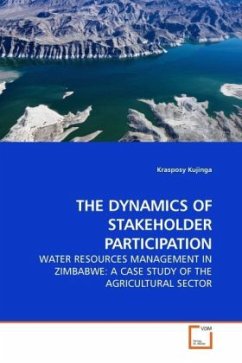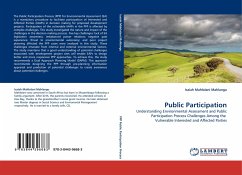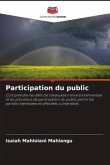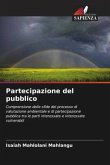Since the early 1990s, the focus of water resources management shifted from technology transfer towards decentralised and user cantered approaches emphasizing stakeholder participation and local organisational development in the form of water user institutions (Clyma, 1989; Dube and Swatuk, 2002; Manzungu, 2004; Kujinga, 2002). Within the Southern African region, a number of countries, which include Malawi, Mozambique, NamibiaaSince the 1990s, the focus for water resources management shifted from sectoral approaches to integrated water resources management (IWRM) which among other things emphasizes stakeholder participation (Global Water Partnership, 2002; Dube and Swatuk, 2002). Within the Southern African region, a number of countries which include Malawi, Mozambique, Namibia, South Africa and Zimbabwe embarked on water reform processes in the 1990s and stakeholder participation was identified as critical in sustainable water resources management (Kujinga and Manzungu, 2004). In Zimbabwe, stakeholder participation in water resources management was broadened through the promulgation of the 1998 Water Act [Chapter 20:24] which replaced the 1976 Water Act.




